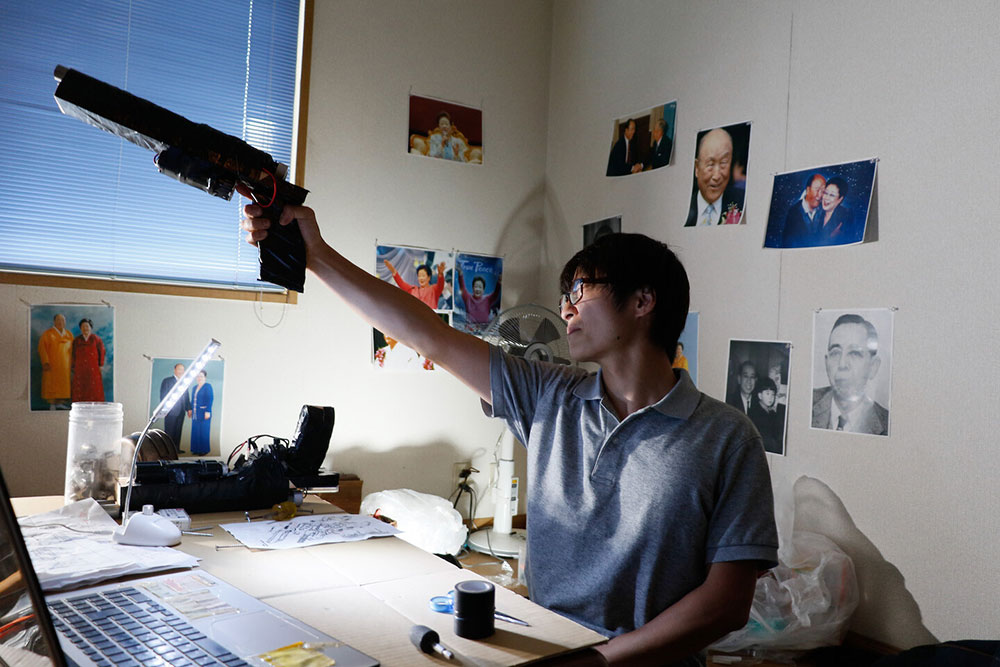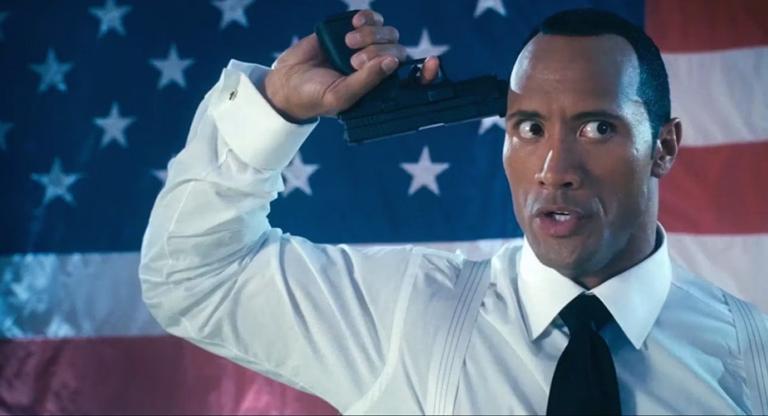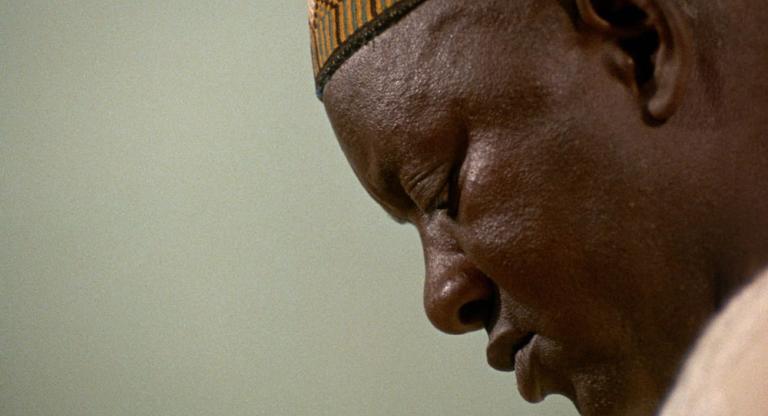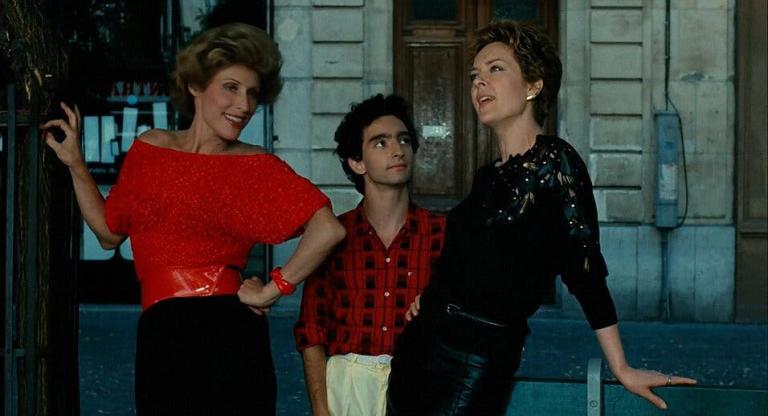On the days preceding, during, and following Shinzo Abe’s state funeral in September 2022, Masao Adachi premiered Revolution+1, a docudrama about the former prime minister’s assassin, Tetsuya Yamagami, to audiences in three Japanese cities—an act of protest against the reverential adieu to a corrupt politician. No stranger to muddling the lines between art and action, Adachi signed up for the Japanese Red Army after making a film about their solidarity efforts with the Popular Front for the Liberation of Palestine in 1971 (Red Army/PFLP: Declaration of World War). He settled in Lebanon and stayed there until his capture and extradition to Japan in 2000.
Revolution+1 follows the unwinding of Tatsuya Kawakami, a fictionalized version of Yamagami. He enumerates his grievances at the film’s start: “My father killed himself a long time ago. My brother lost an eye as a child due to complications from cancer surgery. My mother converted to the Unification Church as a way to escape these hardships. She gave away all our money.” A religious cult, the Unification Church—now officially The Family Federation for World Peace and Unification—long benefitted from preferential relationships with politicians, including Abe (Last December, following political fallout from the assassination, Japan’s parliament enacted a law restricting solicitations by such groups).
Fans of Adachi’s canonized work of “landscape theory,” A.K.A. Serial Killer (1975), will note a consistency of subject matter but not of method; where that film tracked a shooter’s biography through mere depiction of the landscapes he inhabited, Revolution+1 dramatizes its subject’s life head-on. The works can be seen thematically and stylistically as two sides of a coin. While the former zooms out for a structural perspective, Adachi now depicts the hardships imposed by political forces at an individual, psychological level. Shot by Kenji Takama, a fellow alumni of the pinku studio Wakamatsu, the new film has a low-budget video immediacy that suits its ripped-from-the-headlines genesis.
An unexpected connection to the director’s personal life emerges when a side character reveals the story of her father’s death as part of the Japanese Red Army in the Lod Airport massacre. Although apparently fabricated, the scene occasions a dramatic postulation of the film’s central question: can a solitary act of violence motivated by personal grievance be a revolutionary act? Yamgami claimed no affiliation with a particular group or ideology, but affected some measure of outcome— last December Japan’s parliament enacted a law restricting solicitation by groups like the Unification Church as a result of political fallout from the assassination.
Another unspoken question concerns Adachi’s sympathies: does the director endorse Testuya’s act? Here he defers to the audience, though a direct-to-camera address by the protagonist’s sister has the ring of ventriloquism: “You put your thoughts into action. I respect you for that. People will accuse you of terrorism and call you insane. Some idiots might call you an enemy to democracy. But the one who destroyed democracy was Abe.” She pledges to continue the battle in her own way— though she’s not sure what that is yet— pointing out that it would require replacing a great many more politicians to eradicate the church and the corruption enabling its activities.
Revolution+1 screens Tuesday, March 12th at the Roxie for one night only.
A 2021 video conversation with Adachi broadcast on Stream Slate is available to Screen Slate’s Patreon members
Previously:
Revolution+1 premieres in the U.S. tonight, July 6, at e-flux screening room. The screening will be followed by a video discussion with Adachi moderated by Ethan Spigland.





